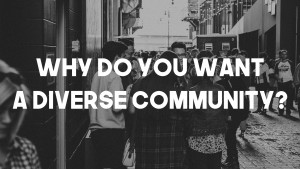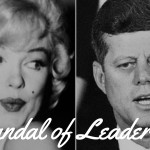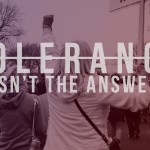
Imagine three circles forming a target. The outer ring is the “what:” it’s who you are, what you do, the thing you sell. The middle ring is the “how:” the unique way you go about it. The third ring is the “why:” it’s the purpose behind the action, your most powerful creed.
This is the Golden Circle, thought leader Simon Sinek’s model for why people are loyal to the products, organizations, and individuals they follow. His TED Talk, “How great leaders inspire action,” has shaped the way I lead my businesses and ministry, even my own home. When you lead with your “why,” Sinek says, you build something longstanding.
Think about all the innovators and game-changers throughout history – Dr. Martin Luther King, Jr., Steve Jobs, Mother Teresa. People followed their movements, or bought their products, because they were connected to their “why.” Dr. King didn’t just march; he had a dream. Jobs didn’t sell the iPhone; he bought the future. Mother Teresa gave up all and gained an international response. In the end, it wasn’t about what these individuals did or how they did it. It was about the “why.”
In the same way, if we want to create lasting, diverse communities, we have to start with the “why.”
I’ve seen diversity become this popular thing in our culture. We’re all for Black Lives Matter – we got the sticker, we wear the t-shirt, we post the long Facebook statuses and share clickbait on Twitter. And while these are not bad things in themselves, trends and feelings will never be enough to forge change. You see, people only go as far as the masses go. But the real breakthroughs in life happen when you move beyond the well-worn path.
Other times, I’ve noticed white guilt become the driving force behind diversity. But I believe there’s a difference between guilt and conviction. Guilt demands a price, a great price, and one that may not even be yours alone to pay. Conviction is the call forward. It’s the strength to look brokenness full in the face and not be overwhelmed. Conviction births change.
“For the kind of sorrow God wants us to experience leads us away from sin and results in salvation. There’s no regret for that kind of sorrow. But worldly sorrow, which lacks repentance, results in spiritual death.” (New Living Translation, 2 Cor. 7:10)
Diversity is not a commodity. The pursuit of it has cost many their jobs, finances, relationships, and even their lives. If we truly want to build diverse communities in our neighborhoods and cities, our “why” must be rooted enough to sustain the sacrifice.
So what is our “why?” Reconciliation – that is the heart of the gospel.
Look at the Bible. It is the story of how sin and death separated us from our Father and in His incredible love for us He sent His one and only Son to tear down the great divide and bring us back to Him. Jesus became the bridge between heaven and Earth. In defeating death, He made a way for us to be saved. Reconciliation is our “why” because it is the very heart of God. It’s the forefront of His ministry. It’s what He does.
Be honest with yourself – what is your reason for building diverse communities? Does your “why” align with God’s? If this is not the case, go to Him in prayer and ask your Father to give you a new “why.” The Bible says, “Keep on asking, and you will receive what you ask for.” (Matt. 7:7)
If you are a follower of Jesus, be encouraged! Just as your Savior has reconciled you to Him, so should you lead with reconciliation. Start with the “why,” and build something long-lasting.












